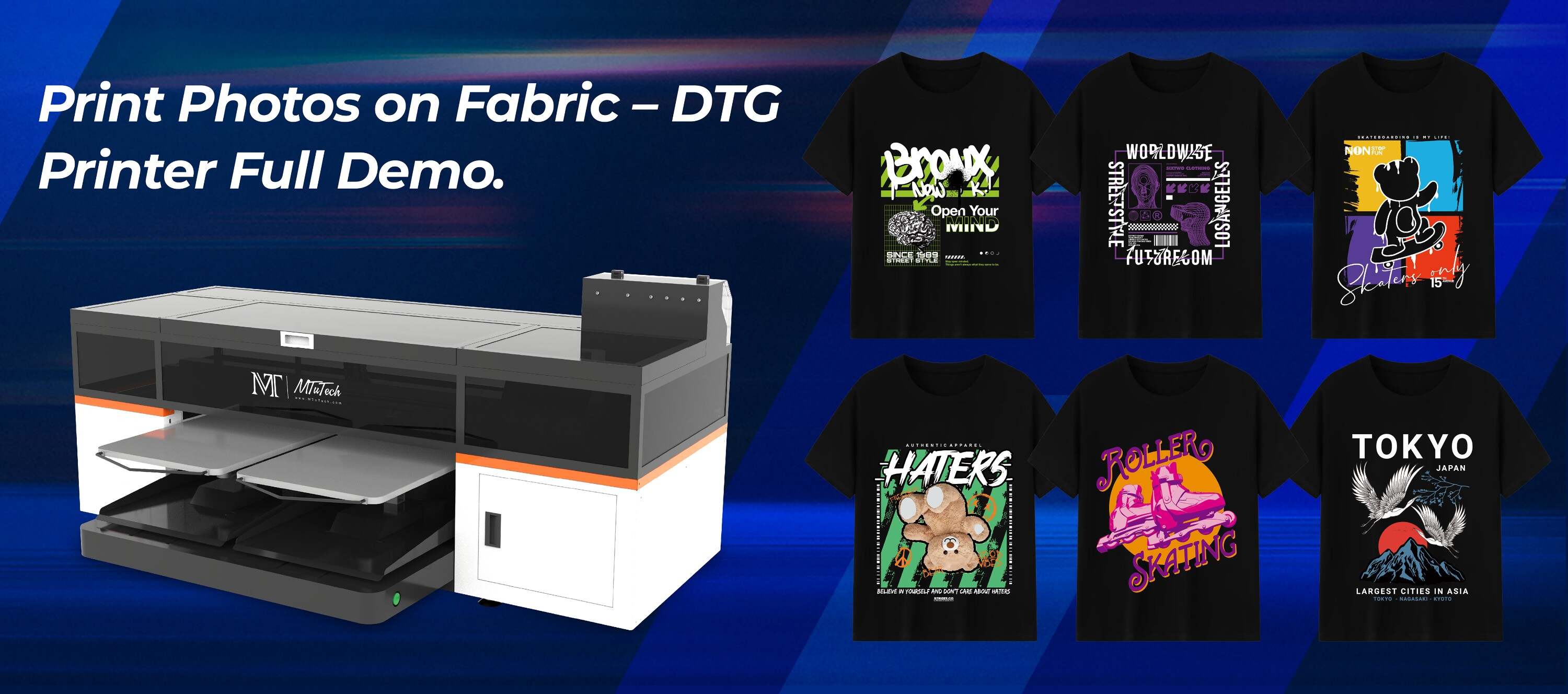 Introduction
Introduction
Your DTG printed T-shirt looks amazing right off the press—but how does it hold up after multiple washes, wears, and environmental exposure? Understanding the lifecycle of a DTG printed garment helps you set customer expectations, improve durability, and choose better materials. In this blog, we’ll walk through what happens to a DTG-printed item from first wear to final fade.
Stage 1: Fresh Off the Press
- Vibrant, soft-feel print
- Fully cured ink bonded to the fabric surface
- Smooth and professional appearance
- Ready for wear or packaging
Stage 2: First Few Washes
- Slight Softening : Print begins to settle into the fabric
- If not cured properly : May show early fading or cracking
- Care instructions : Cold wash, inside out, hang dry recommended
Stage 3: Mid-Life (~10–30 Washes)
- Gradual reduction in vibrancy (especially on dark garments)
- Print may begin to match fabric’s texture more
- Higher-quality inks and garments hold better
- Pre-treatment and cotton quality become noticeable
Stage 4: End-of-Life (50+ Washes or Frequent Use)
- Minor cracking or fading expected depending on use
- Print remains readable and wearable if well-maintained
- Likely to be retired due to fabric wear more than print failure
How to Extend the Life of DTG Prints
- Use premium garments (100% ring-spun cotton preferred)
- Optimize curing time and temperature
- Apply consistent and even pre-treatment
- Provide clear care instructions with each order
Conclusion
The lifecycle of a DTG printed garment is influenced by everything from the shirt you choose to the customer’s laundry habits. By mastering your process and educating buyers, you’ll ensure your prints look great for the long haul.
Get long-lasting results with our high-performance DTG printer systems — built for vibrant, durable prints from start to finish.
